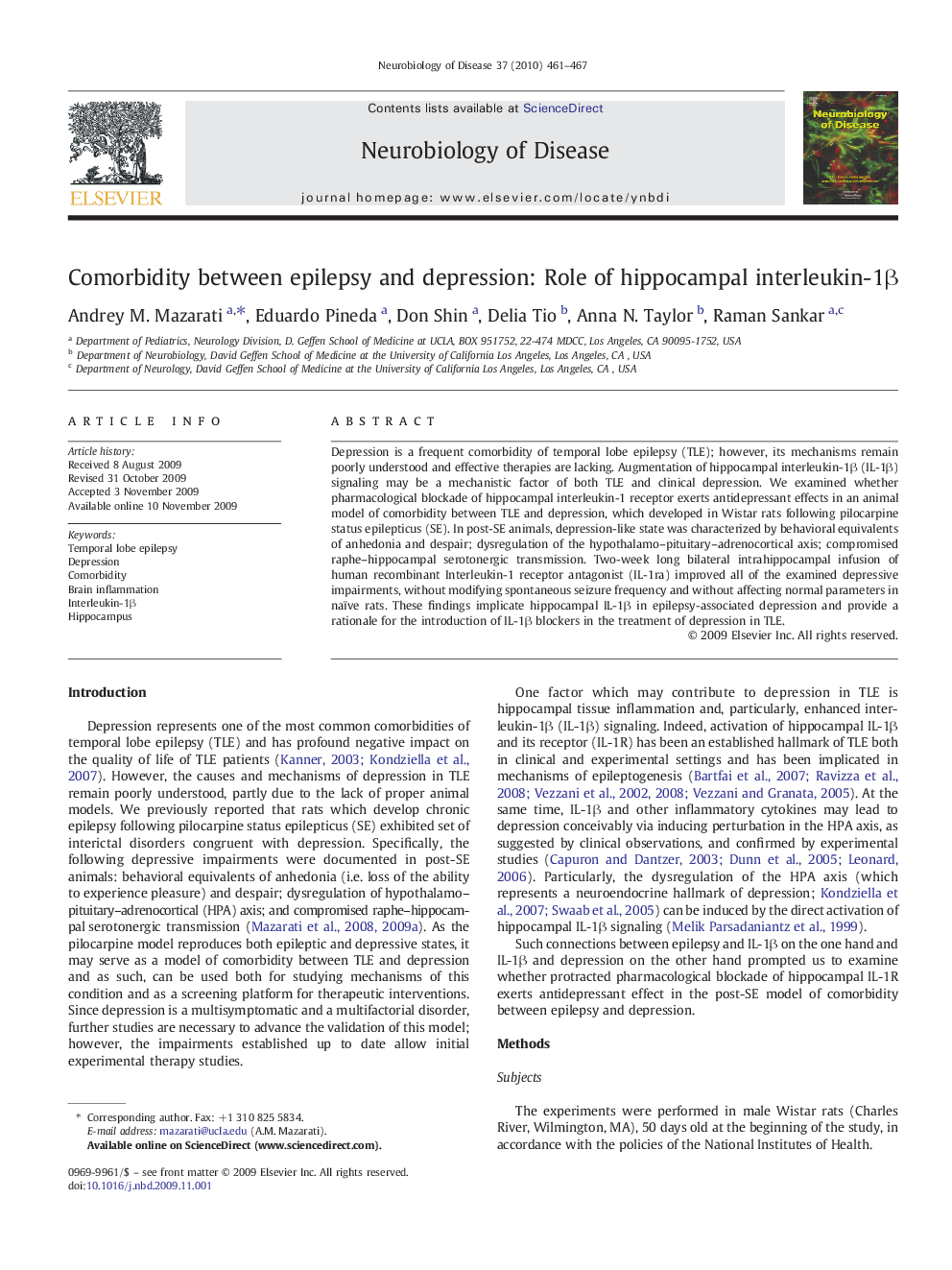| Article ID | Journal | Published Year | Pages | File Type |
|---|---|---|---|---|
| 3070019 | Neurobiology of Disease | 2010 | 7 Pages |
Depression is a frequent comorbidity of temporal lobe epilepsy (TLE); however, its mechanisms remain poorly understood and effective therapies are lacking. Augmentation of hippocampal interleukin-1β (IL-1β) signaling may be a mechanistic factor of both TLE and clinical depression. We examined whether pharmacological blockade of hippocampal interleukin-1 receptor exerts antidepressant effects in an animal model of comorbidity between TLE and depression, which developed in Wistar rats following pilocarpine status epilepticus (SE). In post-SE animals, depression-like state was characterized by behavioral equivalents of anhedonia and despair; dysregulation of the hypothalamo–pituitary–adrenocortical axis; compromised raphe–hippocampal serotonergic transmission. Two-week long bilateral intrahippocampal infusion of human recombinant Interleukin-1 receptor antagonist (IL-1ra) improved all of the examined depressive impairments, without modifying spontaneous seizure frequency and without affecting normal parameters in naïve rats. These findings implicate hippocampal IL-1β in epilepsy-associated depression and provide a rationale for the introduction of IL-1β blockers in the treatment of depression in TLE.
